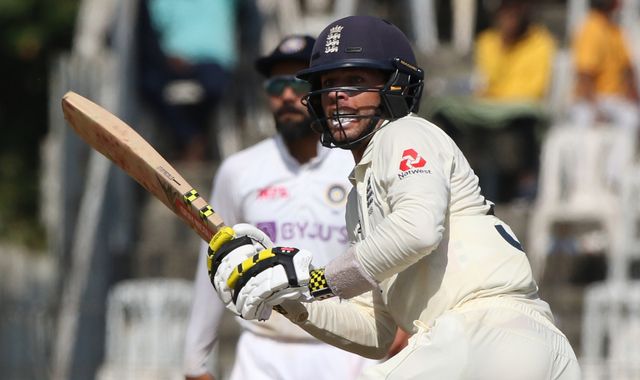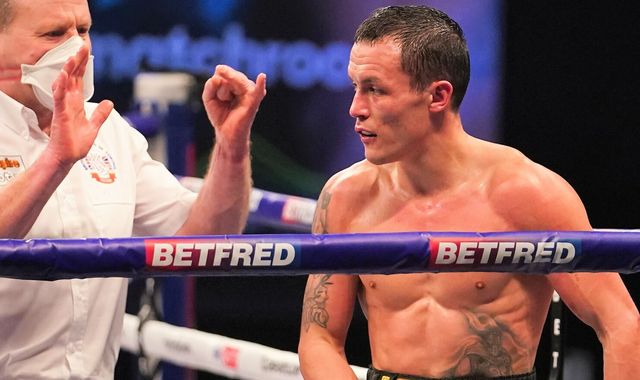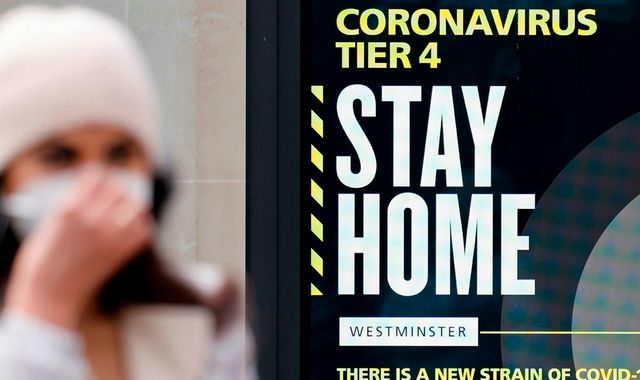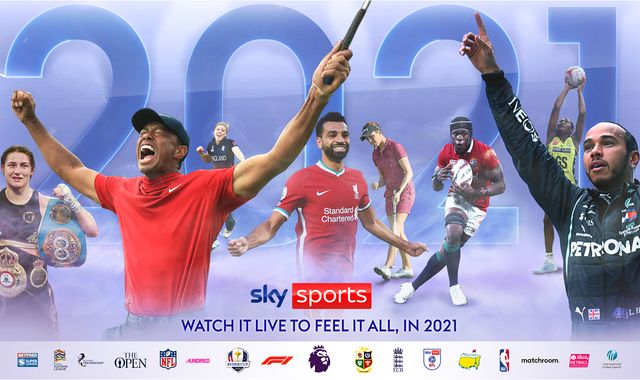How 2020 changed football: Fans stay at home, Liverpool end long wait, Marcus Rashford inspires change
Written by News on 31/12/2020

Fans stay at home amid pandemic
As the 32,125 fans in attendance filed out of the King Power Stadium following Leicester’s 4-0 win over Aston Villa on March 9, little did they know they had just witnessed the final Premier League game of the year to be played in front a capacity crowd.
Two days later, the Premier League and EFL were suspended. Ten days after that, the national lockdown came into force. Fast forward to today and while fans have returned to stadiums in small numbers where guidelines have allowed, there is little expectation the stands will be packed again any time soon. As of Wednesday night, all Premier League games will be played behind closed doors until further notice.
Football has continued at a relentless pace during the pandemic. The schedule was hectic during Project Restart and it has carried on in the same way in the new campaign. But the key ingredient is still missing. Football is something without fans but it is not the same.
Not even close.
There was intrigue at first. The artificial crowd noise; the audible instructions of managers and coaches on the touchline; the accentuated sound of a ball hitting the back of the net.
- Sky Sports’ 2 for 1 channel offer offer
- Get a NOW TV Sky Sports pass for just £25
- Sign up for PL goal alerts
But the novelty has long since worn off.
As journalists, we have been fortunate to attend games during this period. But it has been a sterile experience. There is no substitute for a packed stadium. The empty stands are a reminder that there are bigger things to worry about right now. But they also highlight just how much football needs its fans.
Jurgen Klopp summed it up best. “What this year has shown us is to enjoy the good things for as long as they are there,” he said last week. “I will never, ever in my life take a full stadium for granted. I didn’t think how special it is but I will much more in the future.”
Fight for survival in lower leagues
The financial impact of the pandemic has been far graver for clubs lower down the pyramid than those in the Premier League.
For many EFL clubs, matchday gate receipts are a source of income their survival depends on. Without it, they face a perilous future.
The Premier League has taken measures to help, agreeing a £250m bailout package with the EFL to be distributed among clubs in the Championship, League One and League Two in the hope of ensuring their survival.
But although the agreement was welcomed after months of uncertainty, it offers short-term relief rather than long-term stability. The fight for survival is far from over, in other words, especially with no return to normality yet in sight.
“It’s not the time to put our feet up,” Mark Catlin, CEO of League One Portsmouth, told Sky Sports News recently.
“We need to be preparing for March, April and May. That’s when I will start to fear for clubs.”
As long as stadiums remain unfilled, the threat of financial ruin lingers. EFL clubs have already felt the impact of the pandemic acutely, but its true cost may not become clear until next year.
Marcus Rashford inspires real change
Marcus Rashford has long been cherished by Manchester United fans for what he brings on the pitch – his winner against Wolves the latest example – but it was off it that he made the greatest impact in 2020.
The striker’s free school meals campaign allowed 1.3 million children in England to claim free school meal vouchers during the summer holidays. Then, in November, his lobbying forced another policy U-turn as the government announced a further £400m in spending to support deprived children and their families over winter and beyond.
Rashford’s campaign, inspired by his own experiences while growing up in the Wythenshawe area of Manchester, had a transformative effect on millions of lives, earning him the adulation of the nation and even an MBE in the Queen’s Birthday Honours list.
It also showed how a footballer can use his platform to inspire tangible change. Rashford brought people together behind a common goal – “this is not politics, this is humanity,” he said in October – and did not rest until that goal was achieved.
“I know in football it’s so difficult to put aside rivalries,” he told Sky Sports last week. “But in a time where people needed it most, the public and the country have done that.”
Rashford’s actions reflect how football has embraced its social conscience this year.
Players including Raheem Sterling and Hector Bellerin have spoken out on social issues with increasing regularity. And six months on from its introduction, the sight of players taking a knee in support of racial equality remains an impactful symbol of the sport’s power for good.
Football unites against racism
Footballers taking a stand or speaking out against racism is not new but in 2020 we saw the game come together like never before following the death of George Floyd.
Amid the rise of the Black Lives Matter movement, players in the Premier League, EFL, international football, and the women’s game began to take a knee ahead of kick-off in a sign of solidarity with the fight for equality.
That display continued into the 2020/21 season, with Premier League players wearing a No Room For Racism badge on their sleeve, and in December a PFA survey revealed players overwhelmingly support continuing the gesture.
“This powerful symbol of solidarity represents the players’ commitment to anti-racism and is not an endorsement of any political position,” said the PFA. “It is a peaceful act of unity that highlights a persistent and systemic issue.”
Liverpool end their long wait
Liverpool will always remember 2020 as the year in which they ended their long wait for a league title. Jurgen Klopp’s side achieved the feat with seven games of last season to spare and went on to finish the campaign with 99 points – the second-highest total in Premier League history.
It is all the more impressive considering what came before it. In 2018/19, Manchester City beat Liverpool to the crown by a single point, meaning a campaign in which the Reds accrued 97 points, losing only one game out of 38, was in vain.
It took immense character to come back from that and win it, especially with the weight of history on their shoulders. But Liverpool’s dominance was such that their triumph looked inevitable long before the season was interrupted by the pandemic.
It was just a shame that no fans were there to celebrate at the end, but 2,000 of them returned to Anfield for the 4-0 thrashing of Wolves earlier this month and it appears little has changed. Klopp’s side finish the year on top of the table, still looking down on the rest.
To achieve a second successive Premier League triumph – this time, potentially, with fans there to see them do it – would arguably be an even greater feat than the first one.
Their title rivals will hope to stop them in 2021. But there can be no disputing that 2020 was their year.
VAR brings more questions than answers
The Premier League has attempted to finetune its application of VAR throughout the year but controversial decisions are still cropping up on a weekly basis. Technology intended to make the game fairer and simpler still seems to be having the opposite effect.
Sheffield United boss Chris Wilder has called it a “farce”, Crystal Palace manager Roy Hodgson has deemed it a “nonsense”, while Jose Mourinho has said the Video Assistant Referees should be renamed ‘Video Referees’, because, in his words, “they are the ones who make the big decisions”.
The new season brought changes, with on-field referees instructed to review incidents on pitchside monitors and their assistants told to only flag for offside after a passage of play has been completed. But the consensus is that the alterations have only served to make the decision-making process even slower. Enjoyment has suffered.
“I was a massive fan of VAR before it came in,” said Sky Sports pundit Jamie Carragher on Monday Night Football earlier this month. “The people who brought VAR in weren’t trying to ruin the game, they were trying to improve and help the game.
“I just think now we’re at the stage with VAR that there are good things and bad things, but the majority of the people in this country haven’t bought into VAR. I don’t think people are enjoying the football as much.”
It remains to be seen what the future holds for VAR, but what’s certain is that many fans saw enough in 2020 to decide that the game was better off without it.
Lockdown shifts
The world changed when the COVID-19 pandemic swept the globe. The resulting lockdown affected every corner of life and football was no exception.
But the Premier League returned behind closed doors in June after a three-month suspension and some teams came back stronger than before.
Initially, Southampton recorded the biggest positive swing in results. But, as last campaign merged into this, Aston Villa and West Ham have now produced the strongest transformations since lockdown, while Manchester United have also improved.
In contrast, Sheffield United’s form has plummeted since stadiums emptied, while Crystal Palace, Liverpool and Leicester have also suffered notable dips.
Youth focus
One thing is for sure, the league is getting younger. Starting XIs in the Premier League are averaging at a decade-low this season at just under 27 years old – dropping for the fourth campaign running and nearly one year younger than in 2016/17.
High-flying Aston Villa are the key players in driving that down this term with an average age of just 25 years and 155 days, followed by Fulham (26y, 7d), Brighton (26y, 10d), Manchester United (26y, 13d), Chelsea (26y, 89d) and Arsenal (26y, 149d).
Crystal Palace remain the eldest side by some distance with an average age of nearly 30 – as was the case last season.
Top two domination ending?
The Premier League has been controlled by Manchester City and Liverpool over the past three years but while Liverpool lead the way this term and City would be just a point behind if they won their two games in hand, there is a feeling the past two champions have come back towards the pack a little.
Manchester United had a far from perfect campaign in 2019/20 and finished 15 points off runners-up City. Now they are one win in their game in hand from going level with leaders Liverpool.
Will Liverpool and City stamp their authority again in 2021 – or are we entering a new phase?
January transfer window 2021
The transfer window in England for the Premier League and Sky Bet EFL will open on January 2 and close on February 1, 2021.
The Bundesliga and Ligue 1 windows will also open on January 2 while La Liga and Serie A will begin their trading on January 4.
As usual, players can be bought and sold across Europe and beyond. Loan deals are also able to be completed during the month-long window.
- Transfer Centre LIVE! | Papers – latest headlines
- Done Deals in July and August | Done Deals in September | Done Deals in October
At the time of writing, there is no indication that there will be another extended domestic transfer window between Premier League and EFL clubs.
In the summer, English sides were still able to do business for a further 11 days after the first deadline on October 5. The second domestic window closed on October 16, although Premier League clubs were only able to buy from EFL clubs and not among themselves.
This saw the likes of Said Benrahma, Joe Rodon and Karlan Grant secure moves from Championship clubs into the top flight.
Keep up to date with all the latest transfer news and rumours in our dedicated Transfer Centre blog on Sky Sports’ digital platforms. You can also catch up with the ins, outs and analysis on Sky Sports News.
(c) Sky Sports 2020: How 2020 changed football: Fans stay at home, Liverpool end long wait, Marcus Rashford inspires change







